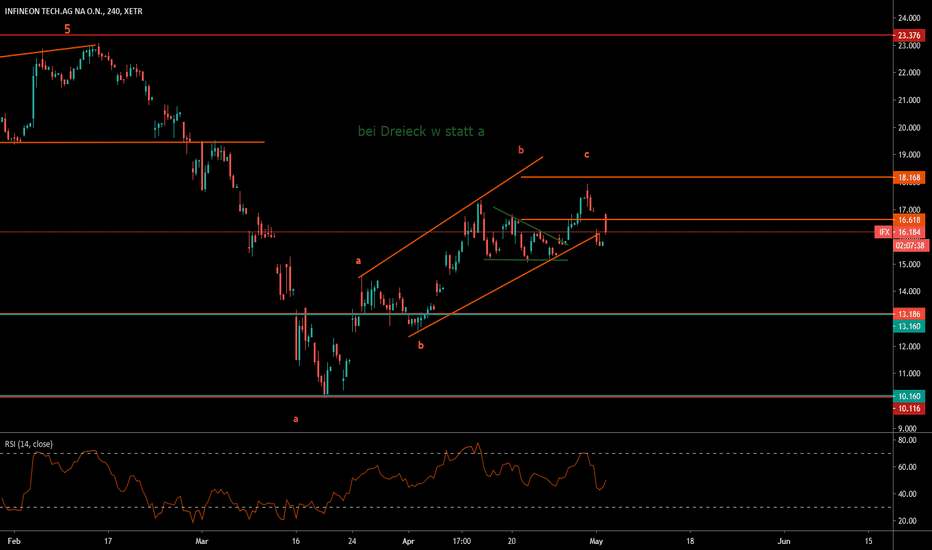Did The Fentanyl Crisis Open Doors For U.S.-China Trade Talks?

Table of Contents
The ongoing fentanyl crisis in the United States has profoundly impacted US-China relations. While primarily a devastating public health emergency, the crisis's origins—and the significant role of precursor chemicals sourced from China—have injected a new level of urgency into trade negotiations between the two superpowers. This article examines the intricate connections between the fentanyl crisis and the evolving dynamics of U.S.-China trade talks, exploring both the challenges and potential opportunities for cooperation.
The Fentanyl Crisis: A Public Health Emergency and National Security Threat
The Scope of the Problem:
The fentanyl crisis represents a catastrophic public health emergency. The sheer scale of overdose deaths is alarming. According to the CDC, tens of thousands of Americans die each year from fentanyl-related overdoses, making it the leading cause of death for young adults. This surge in fatalities is largely attributed to the rise of synthetic opioids, particularly fentanyl, which is significantly more potent than heroin or morphine. The devastating impact extends far beyond individual lives, affecting families, communities, and straining healthcare systems nationwide. Fentanyl's highly addictive nature and its extreme potency contribute to its lethality, making it incredibly difficult to treat addiction and reverse overdoses.
- Statistics: The CDC provides continuously updated data on fentanyl overdose deaths, highlighting the crisis's ongoing severity.
- Impact: The crisis strains emergency services, hospitals, and addiction treatment centers, resulting in a significant financial burden on society.
The Role of China in the Fentanyl Supply Chain:
A significant portion of the precursor chemicals used to synthesize fentanyl originate in China. These chemicals, while legal in themselves, are easily diverted to illicit fentanyl production. Tracking and regulating the flow of these precursors presents a major challenge due to the complexity of global supply chains and the sophisticated methods employed by drug traffickers. The debate over China's responsibility is ongoing. While China has taken some steps to control the export of certain chemicals, critics argue that these measures are insufficient and that China's involvement extends beyond the mere supply of precursors. Evidence suggests Chinese companies and individuals are directly involved in the production and trafficking of fentanyl.
- Precursor Chemicals: Specific chemicals used in fentanyl synthesis are often identified and targeted by international regulatory bodies, but new ones frequently emerge.
- Enforcement Challenges: The vastness of global trade and the decentralized nature of illicit drug production hinder effective enforcement efforts.
National Security Implications:
The fentanyl crisis has significant national security implications. The surge in opioid-related deaths weakens the workforce, increases healthcare costs, and undermines social stability. Furthermore, the drug trade is inextricably linked to other criminal activities, including human trafficking, money laundering, and violent crime. The crisis places a tremendous strain on law enforcement agencies, diverting resources from other crucial areas of public safety. The impact on public health infrastructure is substantial, with hospitals and treatment centers struggling to cope with the overwhelming demand for services.
- Economic Impact: The economic cost of the opioid crisis, including healthcare, law enforcement, and lost productivity, is astronomical.
- Transnational Crime: The fentanyl trade fuels organized crime, posing a significant threat to national and international security.
Leveraging the Fentanyl Crisis in US-China Trade Negotiations:
Pressure Tactics and Sanctions:
The U.S. government has employed various pressure tactics, including sanctions, to urge China to take stronger action against the flow of fentanyl precursors. These sanctions can target specific Chinese companies or individuals believed to be involved in the illicit trade. The effectiveness of such measures is debated, with some arguing that they have limited impact, while others believe that they exert significant pressure. Counterarguments often cite the potential for retaliatory actions from China, impacting broader trade relations.
- Targeted Sanctions: Sanctions can include asset freezes, travel bans, and restrictions on business dealings with targeted entities.
- Trade Restrictions: Import restrictions on specific chemicals or products could be implemented, but carry the risk of negative consequences for legitimate businesses.
Opportunities for Collaboration:
Despite the existing tensions, the fentanyl crisis presents opportunities for unprecedented collaboration between the U.S. and China. Joint initiatives focused on drug interdiction, intelligence sharing, and best practices could significantly disrupt the fentanyl supply chain. Enhanced cooperation would require overcoming significant challenges, primarily building trust and overcoming historical distrust. This cooperation could extend beyond fentanyl to address other transnational crime challenges.
- Intelligence Sharing: Joint investigations and the exchange of intelligence could significantly improve law enforcement efforts in both countries.
- Joint Operations: Collaborative operations targeting drug trafficking networks could significantly disrupt the flow of fentanyl and its precursors.
Balancing Trade and Public Health:
Negotiating a resolution requires a delicate balance between maintaining robust trade relations and addressing the urgent public health crisis. Strategies must account for both the economic benefits of trade and the devastating human cost of the fentanyl epidemic. Finding compromises and concessions may involve targeted interventions rather than broad-based trade restrictions, focusing on cooperation and accountability rather than solely punitive measures. Developing long-term sustainable strategies requires a multifaceted approach that incorporates public health initiatives, law enforcement collaboration, and international cooperation.
- Targeted Interventions: Focusing on specific aspects of the supply chain, such as precursor chemicals, rather than broader trade restrictions.
- Public Health Initiatives: Investing in treatment programs, harm reduction strategies, and public awareness campaigns.
The Future of US-China Trade Talks in the Shadow of Fentanyl:
Potential for Breakthroughs:
The fentanyl crisis, while presenting significant challenges, also offers potential for breakthroughs in other areas of US-China trade relations. Addressing this shared threat could foster greater transparency and accountability, leading to improvements in other aspects of bilateral cooperation. Successful collaborations could encourage further international cooperation in combating synthetic drug production and trafficking globally. This could include collaborative efforts to strengthen regulatory frameworks, share best practices, and support international law enforcement initiatives.
- Improved Transparency: Increased data sharing and collaboration could enhance transparency in the global supply chains of precursor chemicals.
- International Cooperation: The fentanyl crisis underscores the need for global cooperation to combat transnational crime.
Challenges and Obstacles:
Despite the potential for progress, significant challenges and obstacles remain. Escalating tensions could hinder productive dialogue and compromise. Continued disagreements over responsibility and the appropriate response could further complicate negotiations. The inherent complexities of international relations, including differing political and economic priorities, will need to be carefully navigated. Sustained, long-term efforts, requiring consistent political will and international cooperation, are crucial to combatting the fentanyl crisis effectively.
- Political Will: Continued commitment from both governments is essential to sustaining long-term efforts to address the fentanyl crisis.
- International Collaboration: Effective solutions require cooperation with other countries involved in the fentanyl supply chain.
Conclusion:
The fentanyl crisis presents a grave challenge to both public health and US-China relations. While the crisis undoubtedly creates tensions, it also presents critical opportunities for increased cooperation in addressing a shared global threat. The success of future U.S.-China trade talks hinges on both countries' willingness to engage constructively on the fentanyl issue, carefully balancing the need for strong trade relations with the urgent need to combat this deadly public health emergency. Understanding the intricate connections between the fentanyl crisis and U.S.-China trade talks is vital to finding lasting solutions. Stay informed on these critical developments and continue to advocate for stronger policies to combat the fentanyl crisis and improve US-China relations.

Featured Posts
-
 Palantir Stock Q1 2024 Earnings Reveal Government And Commercial Business Trends
May 09, 2025
Palantir Stock Q1 2024 Earnings Reveal Government And Commercial Business Trends
May 09, 2025 -
 Choking Hazard Toddlers Near Fatal Tomato Incident Caught On Bodycam
May 09, 2025
Choking Hazard Toddlers Near Fatal Tomato Incident Caught On Bodycam
May 09, 2025 -
 Analysis Infineon Ifx Sales Guidance And The Trump Tariff Factor
May 09, 2025
Analysis Infineon Ifx Sales Guidance And The Trump Tariff Factor
May 09, 2025 -
 The Bubble Blasters And Other Chinese Goods Trade Chaos And Its Impact
May 09, 2025
The Bubble Blasters And Other Chinese Goods Trade Chaos And Its Impact
May 09, 2025 -
 The Great Decoupling Rethinking Globalization And Trade
May 09, 2025
The Great Decoupling Rethinking Globalization And Trade
May 09, 2025
Latest Posts
-
 Families Furious After Nhs Staff Accessed A And E Records Of Nottingham Stabbing Victims
May 09, 2025
Families Furious After Nhs Staff Accessed A And E Records Of Nottingham Stabbing Victims
May 09, 2025 -
 Nottingham Hospital Data Breach Families Outraged By Access To Loved Ones A And E Records
May 09, 2025
Nottingham Hospital Data Breach Families Outraged By Access To Loved Ones A And E Records
May 09, 2025 -
 Data Breach Nhs Staff Face Inquiry Over Access To Nottingham Victim Records
May 09, 2025
Data Breach Nhs Staff Face Inquiry Over Access To Nottingham Victim Records
May 09, 2025 -
 Nottingham Stabbing Investigation Into Unauthorized Access By Nhs Staff
May 09, 2025
Nottingham Stabbing Investigation Into Unauthorized Access By Nhs Staff
May 09, 2025 -
 Nhs Staff Illegal Access Of Nottingham Stabbing Victim Records
May 09, 2025
Nhs Staff Illegal Access Of Nottingham Stabbing Victim Records
May 09, 2025
